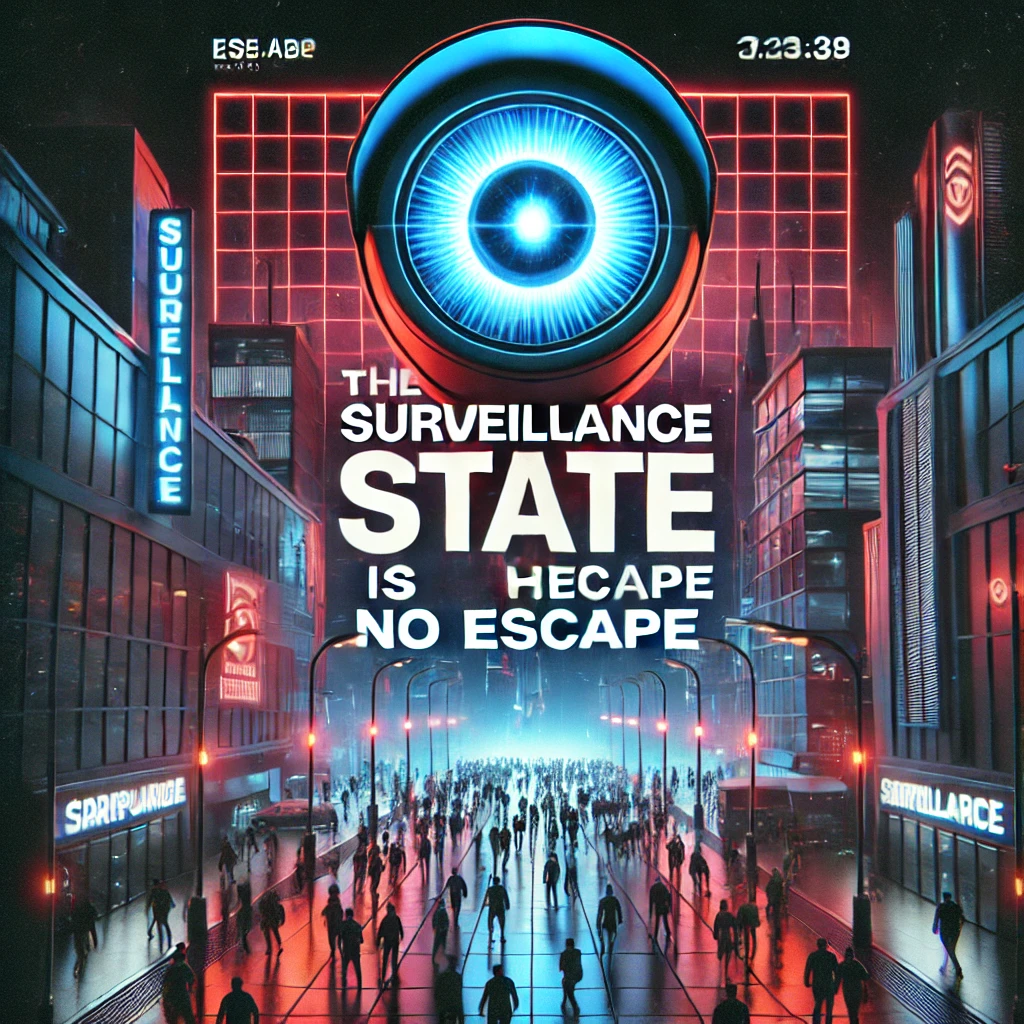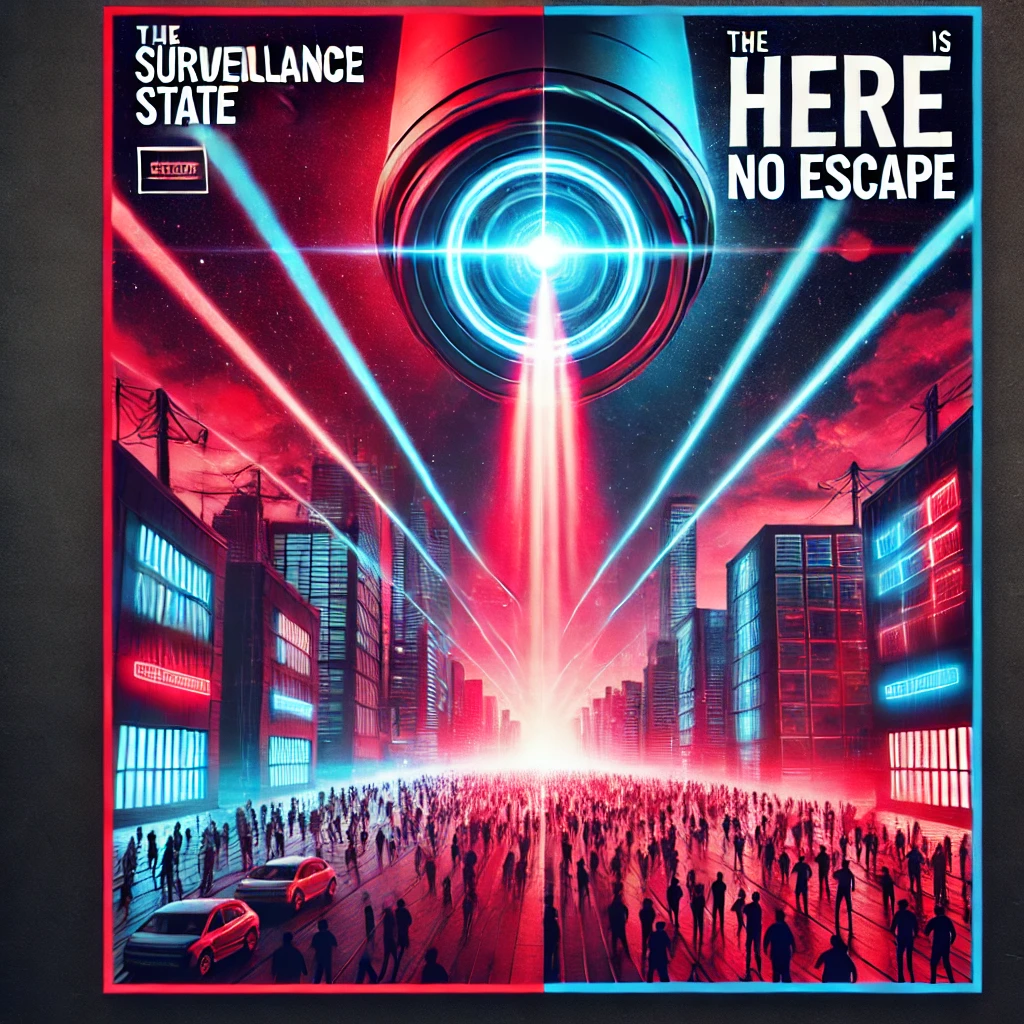The Surveillance State Is Here, There’s No Going Back, and No One Is Even Talking About It
We’re living in the golden age of surveillance, but it’s not the age we asked for. Everywhere we turn, our every move is monitored, logged, and analyzed—whether by governments, corporations, or both working together. What’s even more unsettling is how seamlessly it’s all been woven into our lives. The tools of the surveillance state are no longer hidden; they’re everywhere, and they’re so normalized that most of us don’t even notice. Worse yet, we’ve been stripped of the choice to opt out.
A World Without Privacy
Kashmir Hill, in her groundbreaking book Your Face Is Ours, outlines just how pervasive facial recognition technology has become. She lays bare the terrifying reality: the surveillance state doesn’t just watch us—it owns us. The very geometry of our faces has become property, something that can be mapped, stored, and exploited without our knowledge or consent.
Facial recognition isn’t some theoretical concern; it’s already in use at airports, shopping malls, schools, and even neighborhood parks. Hill points out that opting out isn’t just difficult—it’s practically impossible. Companies like Clearview AI have scraped billions of photos from social media, turning your digital footprint into a permanent identifier. Whether or not you agree to participate, your face is already part of the machine.
Worn Down by Convenience
How did we get here? Slowly and quietly, through a thousand micro-concessions we’ve made in the name of convenience. First, it was Face ID to unlock your phone—a cool feature that felt futuristic. Then it was using facial recognition to check in at the airport or to tag friends in photos. Before we knew it, the practice became so normal that we stopped asking questions.
That’s the terrifying part: we’ve been worn down, not by force, but by design. Surveillance has become part of our daily lives in ways so subtle we barely notice. Each “innovation” chips away at our privacy, and we accept it because the alternative feels inconvenient. Want to unlock your phone with a passcode instead of your face? Sure, but it takes two seconds longer. Want to opt out of facial recognition at the airport? Good luck explaining yourself to the TSA.
Amazon Fresh and the Death of Choice
Amazon Fresh is a perfect example of how surveillance is taking over our lives, not just through facial recognition but through a full-spectrum invasion of our physical spaces. Walk into an Amazon Fresh store, and you’ll be greeted by a network of cameras that track your every move. These cameras don’t just watch—they analyze. They know what you pick up, what you put back, how long you linger, and which aisle you visit next.
Here’s the kicker: you can’t shop at these stores without participating in the surveillance system. There’s no cash option, no checkout line. Your very presence in the store is tied to your Amazon account, and the cameras handle the rest. It’s not just that opting out is inconvenient—it’s impossible. Amazon isn’t just offering a product; it’s creating a world where surveillance is the only way to interact.
No Escape
This is the core problem: we’ve reached a point where opting out of surveillance isn’t a choice. Want to avoid facial recognition? You’d have to give up your phone, your computer, and any social media account you’ve ever created. Want to avoid corporate tracking? You’d need to avoid not just Amazon but most retailers, apps, and websites. Want to avoid government surveillance? You’d have to live off the grid entirely—and even then, you’d still show up in someone else’s Instagram photo.
Kashmir Hill captures this perfectly in Your Face Is Ours: the systems are so embedded, so omnipresent, that resistance feels futile. And that’s by design. The surveillance state doesn’t need to force compliance; it just makes participation unavoidable.
Why This Matters
This isn’t just about privacy—it’s about autonomy. Surveillance doesn’t just track us; it shapes us. The data collected is used to predict and influence our behavior, whether it’s through targeted ads, algorithmic news feeds, or social credit systems in the making. The surveillance state strips us of our ability to act freely because every action is filtered through a lens of control.
Even more concerning is the lack of conversation about it. We’ve been distracted by the dopamine hits of social media, the allure of free shipping, and the convenience of one-click everything. Meanwhile, the walls of the surveillance state have closed in, leaving us with nowhere to turn.
What Can We Do?
The truth is, there’s no easy way out. But there are ways to fight back:
1. Push for Transparency: Companies like Amazon and Meta need to be held accountable for their surveillance practices.
2. Support Privacy Legislation: Laws like GDPR in Europe are a start, but we need global solutions that protect everyone.
3. Rethink Participation: Start small. Use privacy-focused tools like Signal or DuckDuckGo. Avoid apps and platforms that demand access to everything.
4. Start Talking About It: The silence around surveillance is the surveillance state’s greatest weapon. The more we discuss it, the harder it becomes for governments and corporations to operate without scrutiny.
A Future Without Choice
The surveillance state thrives on our apathy. Every time we unlock our phones with Face ID, shop at Amazon Fresh, or click “I agree” without reading the fine print, we make it stronger. The systems are designed to wear us down until we stop fighting, stop questioning, and accept surveillance as the price of modern life.
But it doesn’t have to be this way. The first step is recognizing what’s happening and refusing to stay silent. The question isn’t whether the surveillance state is here—it is. The question is whether we’re willing to fight for a future where we have the choice to opt out.
The time to act is now, before every choice is made for us.

